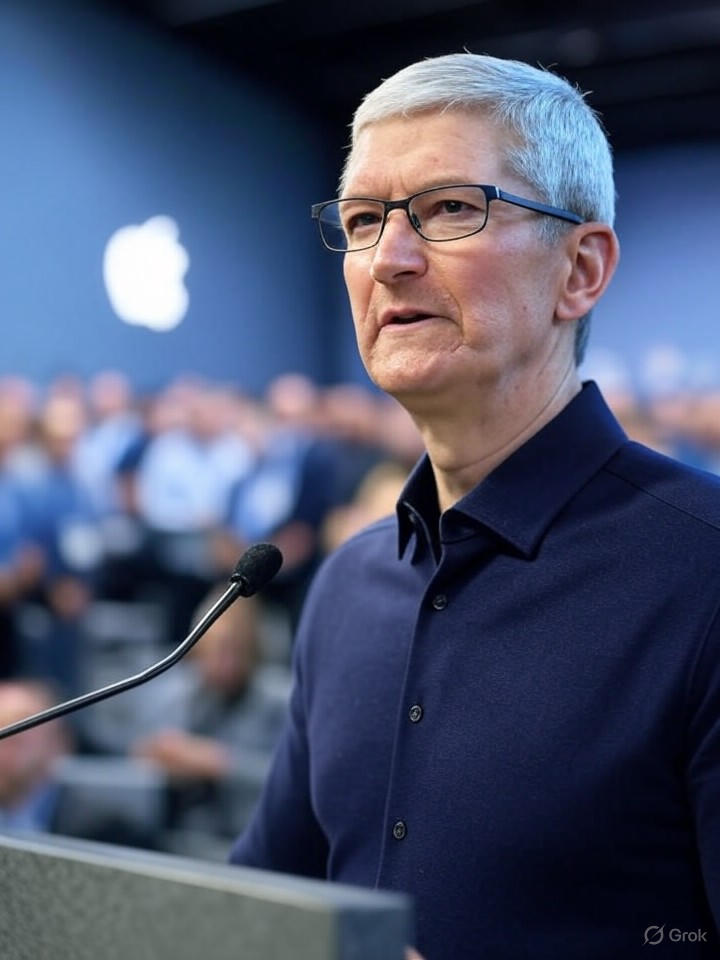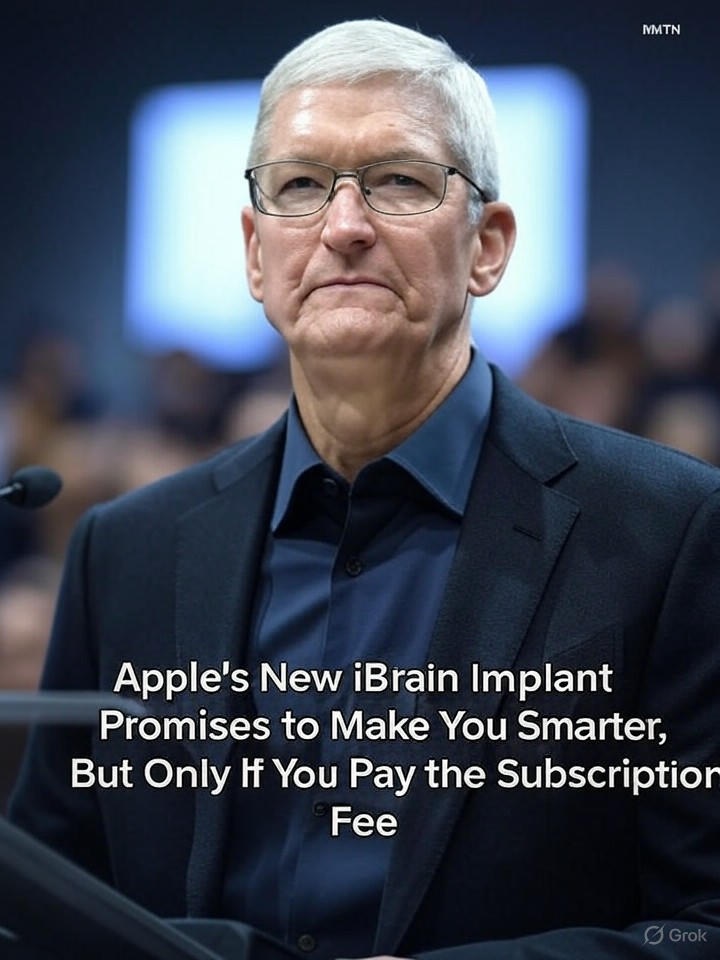CUPERTINO, CA - In a keynote event that had tech enthusiasts drooling and ethicists groaning, Apple CEO Tim Cook introduced the iBrain, a revolutionary neural implant designed to boost human intelligence. But there's a catch: full access to your upgraded smarts comes with a hefty monthly subscription fee. 'Think different... for a price,' Cook quipped, as the audience applauded with the fervor of people who've already forgotten about privacy concerns.
The iBrain promises to enhance cognitive functions like memory, problem-solving, and even creativity. Early adopters report being able to solve crossword puzzles in record time and finally understanding quantum physics – at least until their payment bounces. Without the subscription, users are stuck with 'basic mode,' which apparently just reminds you to buy more Apple products.
Critics are already sounding the alarm, calling it the ultimate paywall for the human mind. 'What's next? Charging for breathing?' tweeted one disgruntled user. Apple defends the model, stating it's similar to iCloud storage or Apple Music – because who wouldn't want their thoughts backed up in the cloud for an extra $9.99 a month?
Installation involves a quick outpatient procedure, complete with Apple's signature minimalist design. The implant syncs seamlessly with your iPhone, allowing you to control thoughts via Siri. 'Hey Siri, make me smarter,' could soon be a common phrase, followed by 'Your subscription has expired. Would you like to renew?'
Competitors aren't far behind. Rumors swirl that Google is developing a rival called MindMesh, which will be free but bombard your brain with ads. 'Imagine pondering life's mysteries, interrupted by a sponsored thought about toothpaste,' joked an industry insider. Meanwhile, Elon Musk's Neuralink team is reportedly scrambling to add a subscription tier that includes 'premium existential dread.'
Apple assures users that data privacy is a top priority, with all neural activity encrypted and stored securely – until the next iOS update requires you to agree to new terms. Early beta testers rave about the benefits, but one admitted, 'I feel brilliant, but my wallet feels lighter. Is genius worth going broke?'
As the iBrain rolls out next year, society braces for a divided future: the subscribed elite with superhuman intellects, and the rest of us fumbling through life on 'lite' mode. In the words of one Apple exec, 'Intelligence isn't free – but with Apple Card, you can pay in installments.'

